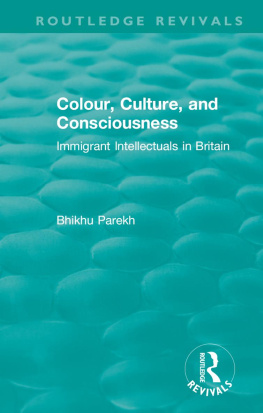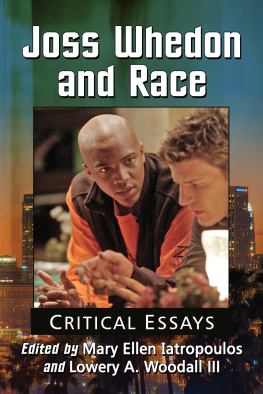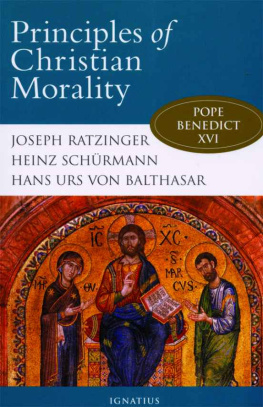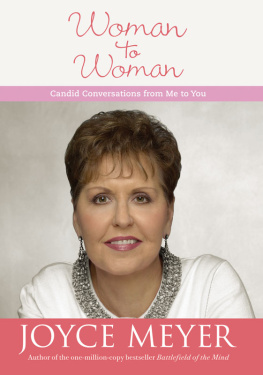THE MORALITY OF WOMAN
(TRANSLATED FROM THE SWEDISH)
"The law condemns to be hung those who counterfeit banknotes; a measure necessary for the public welfare. But he who counterfeits love, that is to say: he who, for a thousand other reasons but not for love, unites himself to one whom he does not love and creates thus a family circle unworthy of that namedoes not he indeed commit a crime whose extent and incalculable results in the present and in the future, disseminate far more terrible unhappiness than the counterfeiting of millions of banknotes!"
C. J. L. Almquist.
The simplest formula for the new conception of morality, which is beginning to be opposed to moral dogma still esteemed by all society, but especially by women, might be summed up in these words:
Love is moral even without legal marriage, but marriage is immoral without love.
The customary objection to this tenet is that those who propose it forget all other ethical duties and legitimate feelings in order to make the sex relationship the center of existence, and love the sole decisive point of view in questions concerning this relationship. But if we except the struggle for existencewhich indeed must be called not a relationship of life but a condition of lifewhat then can be more central for man, than a condition decreed by the laws of earthly lifethe cause of his own origin? Can one imagine a moment which penetrates more deeply his whole being?
That many men live content without the happiness of love, that others after they attain it seek a new end for their activity, proves nothing against the truth of the experience that for men in general the erotic relation between man and woman becomes the deepest life determining factor, whether negatively, because they are deprived of this relation or because they formed it unhappily; or positively, because they have found therein the fullness of life.
The depreciation for mankind of the significance of the sex relation and of the significance of love in the sex relation brings into it all the immorality still imposed by conventionalism as morality.
We no longer consider, as in our mother's youth, ignorance of the side of life which concerns the propagation of the race the essential condition of womanly purity. But the conventional idea of purity still maintains that the untouched condition of the senses belongs to this conception. And it would be right, if the distinction were made between purity and chastity. Purity is the new-fallen snow which can be melted or sullied; chastity is steel tempered in the fire by white heat. For chastity is only developed together with complete love; this not only excludes equally all partition among several but also makes a separation between the demands of the heart and the senses impossible. The essence of chastity is, according to George Sand's profound words: "to be able never to betray the soul with the senses nor the senses with the soul" ("de ne pouvoir jamais tromper ni l'ame avec les sens ni les sens avec l'ame"). And as absolute consecration is its distinctive mark, so is it also its demand. This alone is the chastity which must characterize the family life and form in the future the basis of foundation for the happiness of the people.
Literature was, therefore, wholly justified when in the name of nature it attacked the hyperidealistic subtlety which raised the love of the heart to the highest rank and made that of the senses the lowest; and when it desired that the woman should not only know what complete love was but that she should also when she loved desire that completeness.
Because from time to time powerful voices were raised, like George Sand's or Almquist's, calling without consideration not only that marriage immoral which was consummated without mutual love but also that marriage immoral which was continued without mutual lovea purer consciousness has awakened in questions regarding the conditions of the genesis of the unborn race and elevated the conditions of the personal dignity of man and woman. So eventually it will come to pass that no finely sensitive woman will become a mother except through mutual love; that this motherhood sanctioned legally or not so sanctioned shall be considered the only true motherhood, and every other motherhood untrue. Thus will mankind awaken to such a feeling of the "Sanctity of the generation," and to such an understanding of the conditions of the health, strength and beauty of the race, that every marriage which has its source in worldly or merely sensual motives, or in reasons of prudence or in a feeling of duty shall be considered as Almquist calls it: "A criminal counterfeiting of the highest values of life." And the same criminal counterfeit obtains in every married life which is continued under the compulsion, the distaste or the resignation of one of the two. Man will be penetrated with the consciousness that the whole ethical conception which now in and with marriage gives to a husband or a wife rights over the personality of the other, is a crude survival of the lower periods of culture; that everything which is exchanged between husband and wife in their life together, can only be the free gift of love, can never be demanded by one or the other as a right. Man will understand that when one can no longer continue the life in love then this life must cease; that all vows binding forever the life of feeling are a violence of one's personality, since one cannot be held accountable for the transformation of one's feeling. Even though this new moral ideal should in the beginning dissolve many untrue marriages and thus cause much suffering, yet all this suffering is necessary. It belongs to the attainment of the new erotic ethics which will uplift man and woman in that sphere where now the spirit of slavery and of obtuseness under a holy name degrade them; where social convention sanctions prostitution alongside monogamy, and vouchsafes to the seducer but not to the seduced, social esteem, calling the unmarried woman ruined who in love has become a mother, but the married woman respectable who without love gives children to the man who has bought her!
The erotic-ethical consciousness of mankind cannot be uplifted until the new idea of morality with all its consequences is clearly established.
This ideal has two types of adversary. One is the adherent of the conventional morality; the other the supporter of the transitory union to which the name of "free love" is erroneously applied.
Those of the first type demand quite the same morality for the man as for the woman. They assert that celibacy for either sex brings with it serious difficulties. They maintain that the social feeling of duty, not mutual love, must be the ground of conjugal fidelity. They call "pure love" love untouched by all that which they call "sensuality."
These same moral dogmas in recent years have manifested themselves in the effort to quench all fire, whiten all burning red coals, and drape all nudity in literature and art. The supporters of this dogma certainly understandsince, to begin at the beginning they have surely glanced into the Bible and Homerthat the undertaking would be too vast were it to extend to classic literature. But all the more ardently they have directed their zeal against modern literature and art. And if they do not encounter energetic opposition the fig leaf will soon among us also attest the fall of taste and of the soul.











